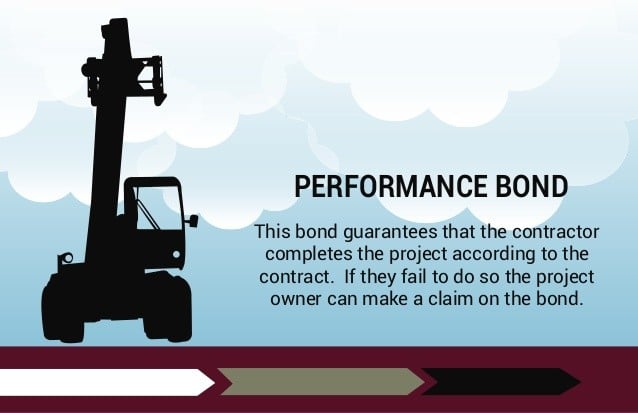Breaking Down Performance Bonds And Payment Bonds

As someone, who works within the construction industry, it is of utmost importance to familiarize your self with construction bonds such as performance bonds and payment bonds. Contractors have an abundance of responsibilities, which must be juggled on a daily basis. Plenty of problems could arise and these individuals could be held responsible. This is why many clients and subcontractors require contractors to obtain payments and performance bonds, before the work starts. What are these bonds and how can they help? You’ll be able to find out below!
Performance Bond
Although payment and performance bonds often work in correlation with one another, they’re much different in some ways. The performance bond helps to provide the client with peace of mind, by ensuring that the contractor will fulfill their duties, as initially described in the contract. The performance bond helps to protect the client, while the payment bonds protects subcontractors and others, who expect to be paid by the contractor.

Payment Bond
As mentioned above, the payment bond is responsible for protecting the contractor’s partners, including subcontractors, laborers and suppliers. This bond ensures that all of these businesses or individuals will be paid in full for the services or materials they provided for the project in question. If these groups are not paid in a timely manner, they can file a claim and work to obtain compensation for their losses.

Three Parties
When it comes to performance and payment bonds, you should realize that three parties would be involved. Although the three entities differ from one bond to the next, they’re nearly identical. Below, you will learn about the three groups for each.
- Principal – The principal is always the contractor. This entity is the one that is held responsible in all circumstances and is required to acquire the bond.
- Surety Company – The surety company is the company, which is providing the principal with the bond. When doing so, they are also backing up the principal’s agreement and claims, but do so for a fee.
- Obligee – The obligee varies depending on the type of bond in question. With the performance bond, this is normally the protect owner. In terms of the payment bond, there could be more than one obligee. It could include the subcontractor, supplier and laborer.
By learning about these three parties, you can figure out precisely where the responsibilities lie and who to contact in the event of trouble.
When To Obtain Performance And Payment Bonds
Before rushing ahead and attempting to obtain these bonds, you should realize that it is not possible to do so right away. Instead, you will first need to obtain a bid bond and place your bid on the project in question. If you win the bid, you will then need to obtain these bonds. Generally, you will be required to obtain all three bonds from the same surety company. Just remember that the bid bond comes first and the remainders come right before the work begins.
Analyzing The Cost
Eventually, you will need to figure out the price of the surety bonds. The truth is that the price is never universal and will depend on various factors, including the finalized amount of the contract. Of course, the most important factor of all will be the contractor’s personal credit score. With a bad credit score, you’ll be required to pay more expensive fees and vice versa. If you’re lucky, you may be able to obtain fees as low as 1 to 3%. Even those that have terrible credit will be able to obtain these bonds, but the process will be a little more strenuous and they’ll be required to pay more in the long run.
Get Your Surety Bonds Now
When searching for a surety company to purchase your performance and payment bonds from, it is crucial to do start by doing extensive research. Do not only base your decision on the annual premium rates, but this can prove to be a huge mistake. Stick with reputable underwriters that have a long tenure in the surety bond industry.
Other useful posts
- Guide to finding the perfect bonding company
- The Importance Of Your Surety Bond Claims Advocate
- A comprehensive guide on how to Become bonded contractor
- Other types of bonds
- Performance bond insurance: Welcome to the big leagues
- What is a bond?
- What do construction bonds cover?
- Surety bond claims – How do surety claims work?
- What does it mean to be bonded?
- Qualifying for a surety bond as a contractor
- Why are construction bonds required?
- How to apply for a construction bond – A complete contractor’s guide
- How much do construction bonds cost?
